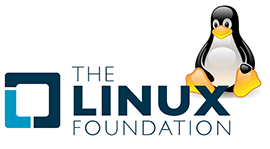Replenishment in the Linux Foundation
 At the LinuxCon conference, which began yesterday in Chicago, the Linux Foundation announced new sponsors and partners of the Open Source movement .
At the LinuxCon conference, which began yesterday in Chicago, the Linux Foundation announced new sponsors and partners of the Open Source movement .The corporate membership of the Linux Foundation has five companies: Adapteva , GitHub , SanDisk , Seagate and Western Digital . The first company from the list develops and sells Epiphany processors and Parallella boards for creating high-performance computers with scalable parallelism. The rest of the companies are well known: SanDisk, Seagate and Western Digital produce drives, and GitHub provides hosting for the joint development of Open Source projects.
These five have joined more than 200 other organizations that pay membership fees to the Linux Foundation. See the full list on the official website .
Replenishment in the ranks - not the only good news. The Linux Foundation also announced that Hitachi and NEC had joined the Core Infrastructure Initiative (CII) project, that is, allocated money for auditing key Open Source programs.
')
At the initial stage, 13 companies and services promised material assistance to OSS developers: Amazon Web Services, Cisco, Dell, Facebook, Fujitsu, Google, IBM, Intel, Microsoft, NetApp, RackSpace and VMware. Now they are joined by Hitachi and NEC. Technology companies will jointly discuss and decide which open source software projects need support — and pay for the work of programmers.
The first to receive funding was the OpenSSL project , which used to live on donations of about $ 2,000 a year.
As part of CII, the work of two full-time OpenSSL staff members is officially paid for, and additionally, professional audit as part of the Open Crypto Audit Project. At the same time help (decent salary) received the developers of Network Time Protocol and OpenSSH.
Although CII was launched as a response to Heartbleed, other projects that lack the funds for development will receive similar support, and CII support is not limited to safety issues. This is a great cash infusion of free software into the whole movement.
The Linux Foundation stresses that free software is superior to proprietary software in code quality and security. Independent studies show this, including the latest Coverity Open Scan . The problem is in the increased complexity of software in recent years, in supporting an increasing number of platforms. Therefore, we need additional resources for development.
Source: https://habr.com/ru/post/234155/
All Articles